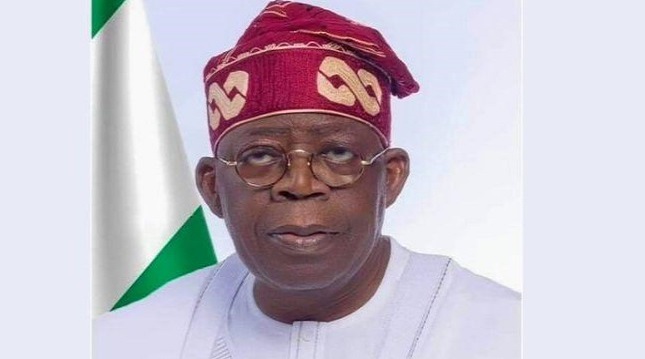News
New Interconnect Rates to Crash Tariff
A new interconnect rate to be in place latest by January 2010 will result in substantial lowering of call charges for the over 67 million telephone subscribers in the country, Nigeria CommunicationsWeek has learnt.
A report of the review of the present interconnect regime by Detecon International and PriceWaterHouseCoopers submitted to the Nigerian Communications Commission (NCC) will form the pillars of the new rate.
Interconnect rates are the rates which service providers pay to each other for terminating calls on their fixed or mobile networks.
Nigeria CommunicationsWeek gathered that the present interconnect regime has been in force since 2006 and therefore required a review in view of the exigencies and new developments in the industry.
While consumers say the present regime is unfriendly, CDMA operators insist the interconnect rate was very high and unbalanced in favour of the GSM operators compared to many other countries of the world.
Interconnection is a key to a competitive market.
In putting in place a new interconnect regime, the NCC will be invoking the powers granted to it by Section 97 (2) (c) of the Nigerian Communications Act, 2003, to intervene in interconnection matters if it considers it in the public interest to do so.
Nigeria CommunicationsWeek gathered that interconnection rates are part of a complex pattern of investment incentives. Indeed governments may prefer to keep them higher in order to encourage investment, while incumbent operators may prefer to keep them lower in order to protect long term revenues.
News
FG Directs Banks, Fintechs to Remit VAT on Service Fees

The Federal Government has directed all banks and fintechs to collect and remit 7.5 per cent value-added tax on certain electronic banking services, effective Monday, January 19, 2026, according to an email notice issued by payment platforms.

The VAT will apply to electronic banking charges, including mobile money transfers, USSD transaction fees, and card issuance fees, according to an email notice on Wednesday shared with customers by Moniepoint.
For example, if a bank charges N100 to make a transfer, the 7.5 per cent VAT will be applied to that service fee, not the money being sent.
“From Monday, January 19, 2026, we are required to collect a 7.5 per cent VAT, to be remitted to the Nigerian Revenue Service (formerly known as the Federal Inland Revenue Service).
“VAT will apply to certain banking services that include electronic banking charges such as mobile banking fees (transfers), USSD transaction fees, and card issuance fees,” the email read.
Other operators are expected to issue similar notices to their customers in the coming days. Services that will remain exempt include interest earned on deposits and savings, meaning customers will not pay tax on the returns from their accounts.
The NRS, formerly known as the Federal Inland Revenue Service, has set the deadline to ensure that all commercial banks, microfinance banks, and electronic money operators comply with the collection and remittance requirement.
Moniepoint stressed that this is not a price increase but a statutory obligation. “Moniepoint is required to collect and remit VAT to the Nigerian Revenue Service,” the company said in a statement.
The move is part of the government’s broader efforts to standardise VAT collection on digital financial services and expand revenue generation amid Nigeria’s growing digital economy. VAT on banking transactions is not entirely new; the NRS is now enforcing uniform collection rules across all platforms, ensuring compliance across the sector.
Customers have been assured that the new tax will be clearly itemised, with the VAT shown separately on transaction statements and reports.
In December, several commercial banks informed customers that the N50 stamp duty would be deducted on electronic transfers of N10,000 and above, following the commencement of provisions of the new Tax Act.
The charge, previously known as the EMTL, has now been formally reclassified as stamp duty and will be applied as a one-off fee on qualifying electronic transfers.
News
Moniepoint Launches Second Cohort of DreamDevs Initiative to Double Down on Africa’s Tech Talent Pipeline

Moniepoint Inc, Africa’s leading digital financial services provider, has announced the opening of applications for the second cohort of its flagship DreamDevs initiative, a transformative program designed to bridge the tech talent gap in Africa by equipping recent graduates with industry-ready skills and real-world experience.

With applications open to graduates across Nigeria, DreamDevs is designed as a national talent search for the next generation of world-class engineers. Each year, just 20 high-potential candidates are selected into an intensive bootcamp, with the strongest performers progressing into internship and full-time roles at Moniepoint. Last year’s cohort delivered four hires – three interns and one full-time engineer – validating the programme’s role as a high-impact talent pipeline.
Targeting graduates from technology, computer science, engineering, and related fields with foundational programming knowledge in HTML, CSS, and JavaScript, DreamDevs offers a rigorous nine-week boot camp that immerses participants via hands-on training from leading software engineers. Standout performers will secure six-month internship placements at Moniepoint, with potential progression to full-time employment based on performance.
“The results from our first cohort validated our belief that with the right training and support, Africa’s young tech talent can compete globally,” says Felix Ike, Co-Founder and Chief Technology Officer at Moniepoint Inc. “This year, we’re doubling down on our commitment by aiming to convert half of our participants into full-time employees. For us, DreamDevs is all about creating sustainable career pathways that drive Africa’s digital economy forward.”
The initiative aligns with Moniepoint’s broader vision of using technology to power the dreams of millions and engineer financial happiness across Africa. It complements the company’s existing talent development programs, including HatchDev – a collaboration with NITHub Unilag that produces 500 specialised developers annually across software engineering, intelligent systems, and IoT/embedded systems as well as its hugely popular, Women-in-Tech which is now in its fifth year.
The initiative is also in tandem with the Federal Government’s 3 Million Technical Talent (3MTT) programme, for which Moniepoint serves as a key sponsor. While the 3MTT programme focuses on mass technical skills training across Nigeria, DreamDevs provides a specialised pathway that takes graduates from foundational training through to employment, creating a complete talent development ecosystem.
“We’re proud to support the government’s vision of building three million technical talents while also creating direct employment opportunities through initiatives like DreamDevs. This multi-faceted approach ensures we’re contributing to national goals while simultaneously addressing our industry’s immediate talent needs.
“By investing in young people and providing them with practical experience, startup incubation support, and product development opportunities, we are not only creating high-impact jobs and driving sustainable economic growth across the continent,” Ike said.
For Victor Adepoju, a member of the first cohort and now a Backend Engineer at Moniepoint, “The organisation of the program was top-notch. The training covered a wide range of topics and provided a solid foundation I could continue to build on. I learned a great deal about cloud technologies, particularly Google Cloud Platform. The program also emphasised valuable soft skills, including planning, organisation, and prioritisation, which have been very useful in my day-to-day work.”
Selection will be based on technical aptitude, learning potential, and alignment with Moniepoint’s values of innovation and excellence. Interested and qualified recent graduates are encouraged to apply before the January 20th deadline via the official portal at dreamdevs.moniepoint.com.
News
Nigeria, Others Lag Behind as Egypt Tops Africa in AI Readiness

Nigeria and other Sub-Saharan Africa countries rank ninth out of nine global regions as Egypt has emerged as Africa’s leading country in artificial intelligence readiness, ranking first on the continent and 51st globally in the 2025 Government AI Readiness Index published by Oxford Insights.

The impressive ranking has been lauded as underscoring North Africa’s growing influence in the global AI race.
According to Egypt’s Ministry of Communications and Information Technology (MCIT), the country scored 57.5 points out of 100, climbing 14 places from 65th in 2024.
The Nile nation also ranked fourth in the Middle East and North Africa (MENA) region, behind Saudi Arabia, Israel and the United Arab Emirates.
The Oxford Insights index assesses 195 governments using 69 indicators across six pillars, including policy capacity, governance, AI infrastructure, public sector adoption, development and diffusion, and resilience.
Egypt topped the Policy Capacity pillar globally with a perfect score of 100, tying with the UK, Serbia and Australia, an indicator of strong national AI policymaking and institutional readiness.
Oxford Insights noted that countries such as Egypt are “expanding the use of AI across national priorities while shaping policies to strengthen domestic AI ecosystems,” although gaps in infrastructure and talent development remain in some contexts.
MCIT minister Amr Talaat attributed Egypt’s strong performance to deliberate government action.
“This achievement reflects our efforts to integrate artificial intelligence into public services and accelerate digital transformation through Egypt’s second National AI Strategy. We are positioning Egypt as a regional AI hub while ensuring AI delivers real economic and social value,” he said.
Launched for 2025–2030, Egypt’s National AI Strategy targets sectors such as healthcare, justice and public administration, while aiming to train 30 000 AI specialists by 2030 and raise AI’s contribution to GDP to 7.7%.
Talaat also highlighted Egypt’s cybersecurity credentials when he highlighted that the country ranked among the top 12 globally in the ITU’s Global Cyber security Index.
Regionally, the results expose sharp contrasts across Africa. Sub-Saharan Africa ranks ninth out of nine global regions, with an average score of 28.04, reflecting persistent gaps in AI infrastructure and public sector adoption.
However, countries such as Kenya, South Africa, Mauritius and Nigeria lead the sub-region, while Rwanda and Ethiopia are gaining momentum through innovation hubs and policy reforms.
In contrast, the MENA region ranks fifth globally, buoyed by significant investment in AI infrastructure and policy capacity, particularly in Gulf states.

 General News2 days ago
General News2 days agoPalmPay, Premier Cool to Reward 10,000 Nigerians with ₦100m in “10k for 10k Campaign”

 News3 days ago
News3 days agoNigeria, Others Lag Behind as Egypt Tops Africa in AI Readiness

 E-Financial2 days ago
E-Financial2 days agoEcobank Joins Trillion-naira Club for the First Time in 20 Years

 E-Business2 days ago
E-Business2 days agoKaspersky Warns Telecom Threats from 2025 will Carry into 2026 as New Technology Adds New Risk

 E-Business2 days ago
E-Business2 days agoNigerian Terra Industries Secures $11.8m for Expansion

 Telecom2 days ago
Telecom2 days agoSHELT Named in Prestigious 2025 MSSP 250 List for Cybersecurity Excellence

 E-Financial1 day ago
E-Financial1 day agoAngst as FG Demands 7.5 Percent VAT on Mobile Bank Transfers, USSD

 News1 day ago
News1 day agoMoniepoint Launches Second Cohort of DreamDevs Initiative to Double Down on Africa’s Tech Talent Pipeline















